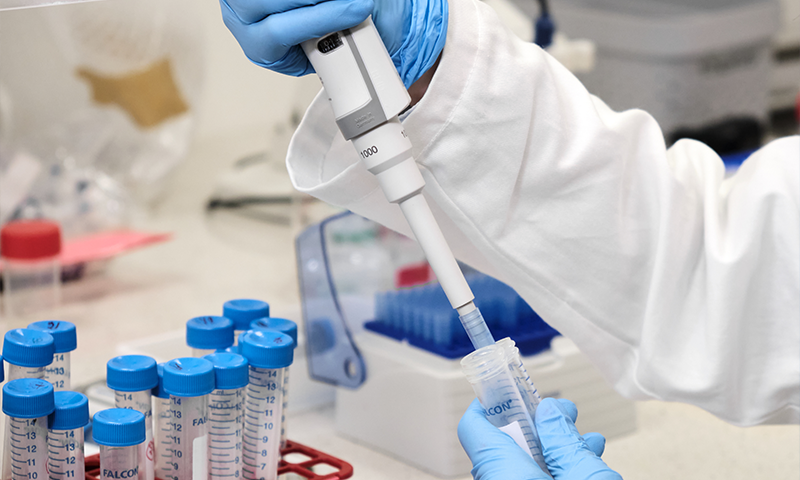Raw Material Analysis
Raw Material Analysis
Active ingredients, inactive ingredients and processing aids all fall under the general category of Raw Materials.
The assurance of product quality begins with the concept of Supply Chain Quality Management. This includes qualification of raw material vendors, validation of the test results that vendors report on their raw material Certificates of Analysis, and a program of ongoing quality testing, monitoring the identity, strength, quality and purity of raw materials.
Supply Chain Quality Management ensures a more efficient use of production resources and can eliminate batch rejections due to poor raw material quality. Manufacturers of pharmaceutical and other therapeutic products are required to monitor the quality of the raw materials that are used in their products.
Though not currently required of manufacturers of cosmetic and personal care products, many understand that monitoring the quality of raw materials used in their products makes good business sense and as a result, conduct raw material testing and analysis with the hope of reducing production delays, downtime, batch reworking, rejections and missed shipping dates.
CPT℠ is a qualified and experienced testing lab that ensures raw material analyses are conducted in strict accordance with compendial, client or in-house methodologies, and in full compliance with all applicable regulations.
Additionally, CPT℠ is ISO/IEC 17025:2017 accredited, with many of the most common raw material tests included within our Scope of Accreditation.
Which Raw Materials Does CPT℠ Test?
CPT℠ has a long history of conducting testing and analysis on raw materials of all types, including but not limited to pharmaceutical and dietary supplement active ingredients, preservatives, botanical ingredients, inactive ingredients, processing aids, solvents, polymeric resins and more.
CPT℠ always recommends to its clients that wherever possible, official compendial methods be employed in the testing of raw materials. Where this is not possible, validated methods or those published in peer-reviewed literature are a suitable alternative.
Our Raw Materials Analysis & Testing Capabilities
CPT℠ maintains state-of-the-art Analytical, Microbiological, Clinical, Photobiology, and In-Vitro Toxicology testing laboratories, all of which are at your disposal in determining the quality and safety of the raw materials you utilize in your products.
Using our specialized departments and well-respected lab facility, we have the capability of testing a wide range of raw materials with respect to their physical, chemical and microbiological attributes, and whether or not they may promote irritation, or exhibit characteristics for allergenicity, photo-toxicity or photo-allergenicity.
Our in-house experts are ever ready to offer guidance and to address any questions or concerns you may have regarding raw materials analysis.

Commonly Requested USP Raw Material Tests
Residual Solvents <467>
This testing is conducted to confirm that if present, residual solvents do not exceed acceptable levels in raw materials.
Elemental Impurities <233>
This testing is conducted to confirm that if present, elemental impurities do not exceed acceptable levels in raw materials.
Assays and Related Compounds/Impurities (Monograph-specific)
This testing is conducted to confirm that active ingredient and preservative raw materials are of the proper strength/potency, and that related compounds/impurities do not exceed acceptable levels.
CPT℠ Major Instrumentation Utilized in Raw Material Analysis & Testing
- High-Performance Liquid Chromatographs (HPLC) – UV, PDA, RI and Fluorescence Detection.
- Ultra-Performance Liquid Chromatographs (UPLC) – UV, PDA and MS Detection.
- Gas Chromatographs (GC) – FID, MS, TCD and EC Detection.
- Inductively Coupled Plasma (ICP) – MS Detection.
- Atomic Absorption/Graphite Furnace Spectrophotometers.
- Differential Scanning Calorimeter (DSC).
- UV/Visible Spectrophotometers.
- FTIR
Why Choose CPT℠ for Your Raw Material Analysis & Testing?
- More than 45 years of testing expertise under the same Ownership/Management.
- Five (5) highly specialized, state-of-the-art laboratories directed by well-seasoned professionals.
- High level of regulatory compliance relating to GMP, GLP and GCP.
- ISO/IEC 17025:2017 accredited with many raw material tests included within our Scope of Accreditation.
- Flexible turn-around times.
- Regulatory and Industry-savvy guidance available to all clients at all times.
- Custom-tailored testing programs.
Think of CPT℠ as an extension of your Quality Team. Accurate testing conducted within a highly compliant testing environment. Raw material analysis of the highest value. Contact us at your earliest convenience.
Testing Techniques Employed by CPT℠
Physical Testing
Examples of which are Specific Gravity, Flash Point, Particle Size, Refractive Index and Optical Rotation.
Wet Chemistry Testing
Examples of which are titrations, and extraction and/or reaction processes leading to spectroscopic or gravimetric analysis.
Instrumental Analysis
Analysis employing modern instrumentation such as HPLC, UPLC, GC, UV/Vis Spectrophotometry, ICP-MS, AA/Graphite Furnace, FTIR and DSC.
Classical Microbiological Testing
Examples of which include Microbial Content using USP <61> and <62> and other standards, LAL Endotoxin and Ames Mutagenicity.
Human Repeat Insult Patch Testing (HRIPT)
Examples of which include Topical Irritation, Allergenicity, Phototoxicity and Photoallergy testing.
In-Vitro Toxicology Testing
Non-animal testing employing US and international methodologies for determining irritation and other undesirable potentials.
Our Departments
Based on the individual needs of our clients, we offer a wide range of support across various departments. Since initial product testing can be fairly complex in terms of a high-quality, safe and trusted product, our clients typically explore the benefits of numerous departments and areas of expertise, including:
- Clinical — Efficacy trials can be performed for safety, consumer in-use, and to support claims such as ‘dermatologist-tested’ and ‘ophthalmologist-tested.’
- In-Vitro Toxicology — Our In-Vitro Toxicology department assists clients when they are looking to perform non-animal (animal-free) toxicology testing.
- Microbiology — Microbial contamination and preservative efficacy testing are key to cosmetic and OTC drug products.
- Photobiology — From SPF and Water-Resistant claims to Photoallergy and Phototoxicity studies, CPT℠ is the world leader in sunscreen testing.
- Analytical — From raw materials, product batch release, and stability shelf-life testing to “free-of” and low-level detection claims, our analytical department ensures that all requirements are met based on industry standards.
- Consulting – Our consulting staff can perform GMP and GLP audits of your facilities or vendors, help create SOPs, develop testing programs, etc.
Request a Quote for Raw Materials Analysis
Please Note: CPT℠ only performs testing for companies. We do not perform product testing for the general public.
